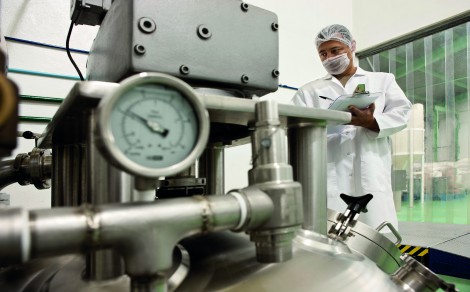Reducing leaks – saving energy

Fixing a leak will increase the pressure of air. This can not only have an impact on your system but also put your projected savings at risk.
The pressure drop should be less than 10% of the compressor’s discharge pressure, as measured from the compressor outlet to the point of use.
If one section of the plant required much lower pressure, we would suggest running a dedicated low-pressure compressor or to regulate the pressure down that line. It’s important to not generate higher pressure than is required.
When it comes to the energy used, on average it is found that for every 1 bar g additional generation pressure there is a loss of 7% in specific energy. And so, keeping pressure low can help to reduce your operating costs.
Zone out
The design and installation of the pipework can help with saving energy and so when considering leak reduction measures, it’s important to consider the pipework currently in place.
Here we’ve outlined some of examples of how you can change the pipework to be more efficient:
Spilt the system into zones and pressurise each as required
Remove or isolate redundant piping
Use vales to isolate parts of the distribution network
Select large radius bends instead of elbows
Support piping to minimise movement and sagging to reduce leaks and buildup of fluid
When looking at the pipework network remember not all parts of the network operate to the same hours or pressure and so it’s possible to save energy by zoning the compressed air system.
By implementing these tips, you can significantly reduce the potential for energy wastage from your compressed air system. Reducing leaks can benefit both your energy bills and the environment by lowering emissions. It’s a real win-win situation!
For more information, please speak to a BCAS member who can assist in this area by emailing enquiries@bcas.org.uk. And to download a free copy of the leakfixing guide vist:
Contact BCAS at Tel: 020 7935 2464 e-mail: info@bcas.org.uk website: www.bcas.org.uk
https://www.linkedin.com/company/british-compressed-air-society/
-
SMART Manufacturing & Engineering Week
04 - 05 June, 2025
NEC, Birmingham UK -
PPMA 2025
23 September, 2025, 9:30 - 25 September, 2025, 16:00
NEC, Birmingham UK -
Advanced Engineering Show 2025
29 October, 2025, 9:00 - 30 October, 2025, 16:00
NEC, Birmingham UK










